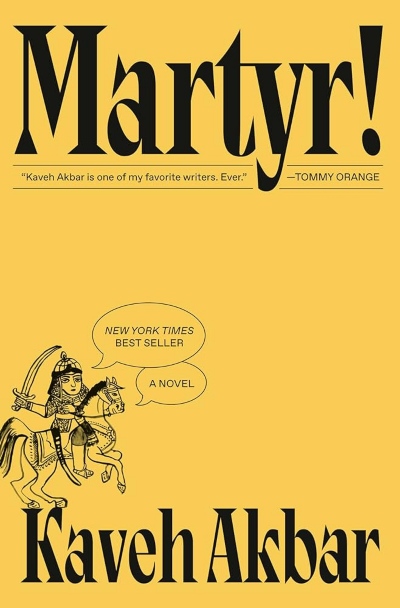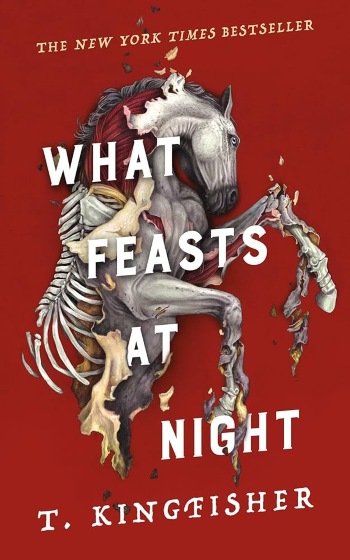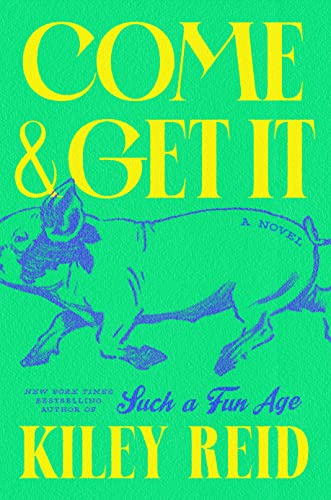Book Review | Heir by Sabaa Tahir
This review explores how Heir blends emotional depth with political intrigue, making it a standout fantasy novel. Tahir’s ability to weave together complex characters and dark themes leaves a lasting impression. Fans of the Ember series and newcomers alike will find much to enjoy in this engaging and thought-provoking book.
Sabaa Tahir’s Heir is the first book in her new duology set 20 years after the events of An Ember in the Ashes. It follows three protagonists: Quil, the reluctant heir to the Martial empire; Sirsha, a banished warrior tracking a murderer; and Aiz, an orphan from the Kegari slums who believes in a prophecy that promises salvation for her people. Tahir weaves together their stories with themes of legacy, power, and revenge, creating a richly textured narrative that’s both emotionally gripping and action-packed.
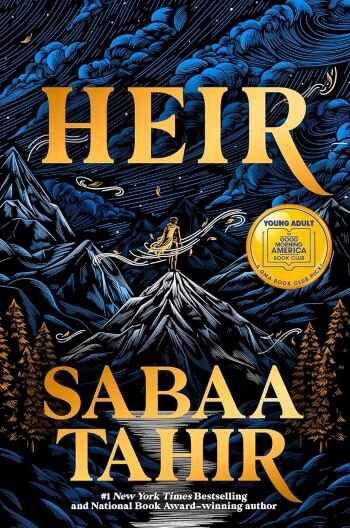
This Heir book review will dive into its character development, thematic depth, and complex world-building. With dark themes of loss, betrayal, and the burdens of leadership, Tahir continues to deliver an intricate fantasy world full of moral dilemmas and emotional struggles.
Strong Characters and Emotional Arcs
Tahir’s character work in Heir stands out. Quil, the main protagonist, wrestles with the heavy burden of ruling an empire steeped in his father’s brutal legacy. He’s haunted by the fear that he could become like his father, and this internal struggle fuels much of his development throughout the book. Sirsha, on the other hand, brings a more action-oriented narrative as she tracks a dangerous killer. Her determination masks the emotional wounds from her past, particularly regarding her strained relationship with her sister. Aiz’s character, fueled by a desire to save her people, introduces a tragic yet hopeful storyline.
Key characters include:
- Quil: The reluctant heir struggling with his family’s dark legacy.
- Sirsha: A warrior outcast, navigating a dangerous world filled with betrayal.
- Aiz: A resilient orphan fighting for her people’s survival.
The characters’ personal journeys mirror the broader political landscape, providing a rich interplay between individual desires and larger societal forces.
Themes of Power, Legacy, and Betrayal
One of Heir’s most compelling aspects is its exploration of power and legacy. Quil’s struggle to step into his father’s role reflects a larger theme about the weight of leadership and the difficulty of escaping a violent past. Tahir also delves into the consequences of unchecked power, particularly through Aiz’s storyline in the Kegari slums. Here, readers are reminded that power often corrupts, and the choices made by those in authority affect the most vulnerable.
In a powerful passage, Quil reflects:
“The weight of the crown feels heavier with each passing day, as if it remembers the blood of my father.”
This quote perfectly encapsulates his internal battle and the overall theme of living in the shadow of past decisions.
Sirsha’s quest for justice adds layers of intrigue, as she faces moral dilemmas about what justice truly means in a world filled with violence and betrayal.

Political Intrigue and World-Building
Tahir’s world-building in Heir is as rich as fans would expect, especially for those familiar with the An Ember in the Ashes series. While the focus is on the personal conflicts of Quil, Sirsha, and Aiz, the backdrop is filled with political tension, alliances, and betrayals. Tahir masterfully combines elements of fantasy with social commentary, exploring how different factions within the empire manipulate power for their own gain.
Key elements of the world-building include:
- Political factions: Competing groups in the empire vie for control, each with their own hidden agendas.
- Cultural and regional tensions: Tahir introduces new aspects of the world, such as the customs of the Kegari slums and the martial traditions that govern the empire.
- Corruption and betrayal: Power struggles drive much of the plot, creating a tense atmosphere of distrust.
Tahir’s ability to intertwine personal and political stakes gives the novel depth, making the characters’ choices feel even more significant against the backdrop of a world on the brink of change.
The Role of Love and Relationships
Amid the political tension and dark themes, Heir also explores love in its many forms. The novel doesn’t shy away from showing how love, whether familial, romantic, or platonic, can be both a source of strength and a cause for pain. Quil’s love for his family, particularly his desire to live up to his father’s legacy without repeating his mistakes, is central to his arc. Sirsha’s complicated relationship with her sister adds emotional stakes to her quest for vengeance.
Themes of love include:
- Familial love: Quil’s loyalty to his family often conflicts with his personal desires.
- Romantic love: There is a slow-burn romance that adds emotional complexity to the narrative.
- Friendship and loyalty: The bonds formed throughout the novel highlight the importance of chosen family.
These emotional connections bring balance to the novel, offering moments of tenderness in an otherwise intense and action-packed story.
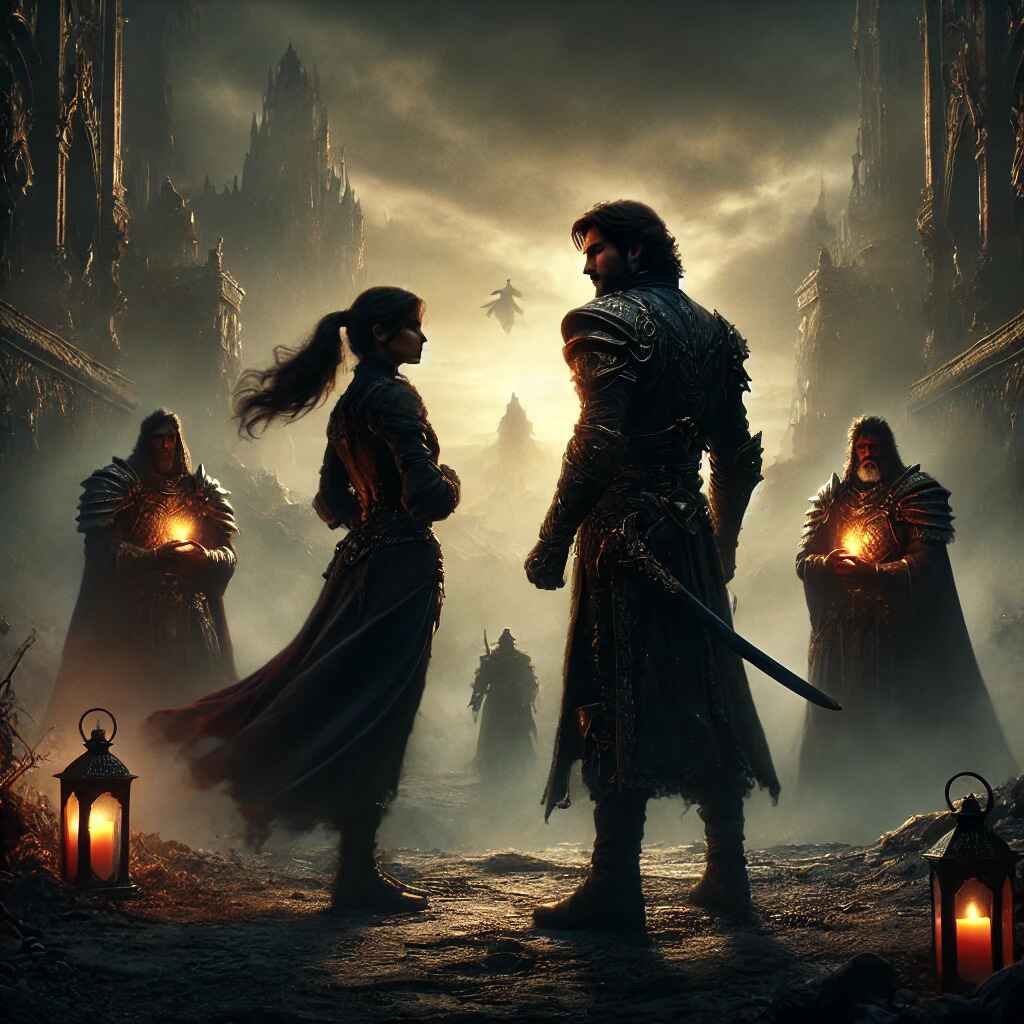
Conclusion: A Dark, Gripping Fantasy
In Heir, Sabaa Tahir returns to her world of political intrigue and emotional complexity. The novel is both dark and gripping. This Heir book review highlights the strengths of Tahir’s character development, thematic depth, and immersive world-building. These elements make the novel stand out in the fantasy genre. Whether you are a fan of Tahir’s earlier work or new to her writing, Heir is a must-read. It offers an immersive and thought-provoking experience for readers seeking a captivating story.

